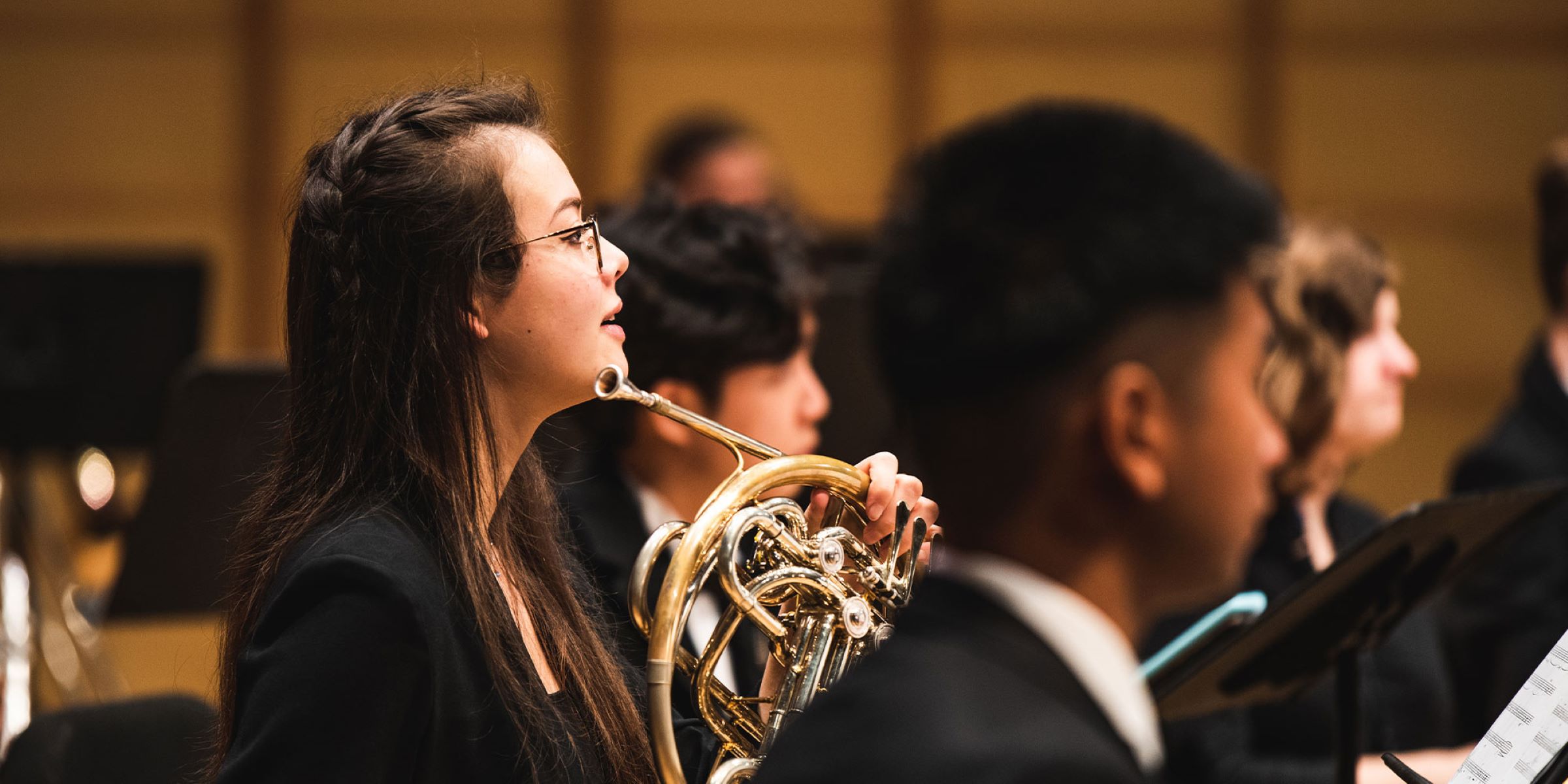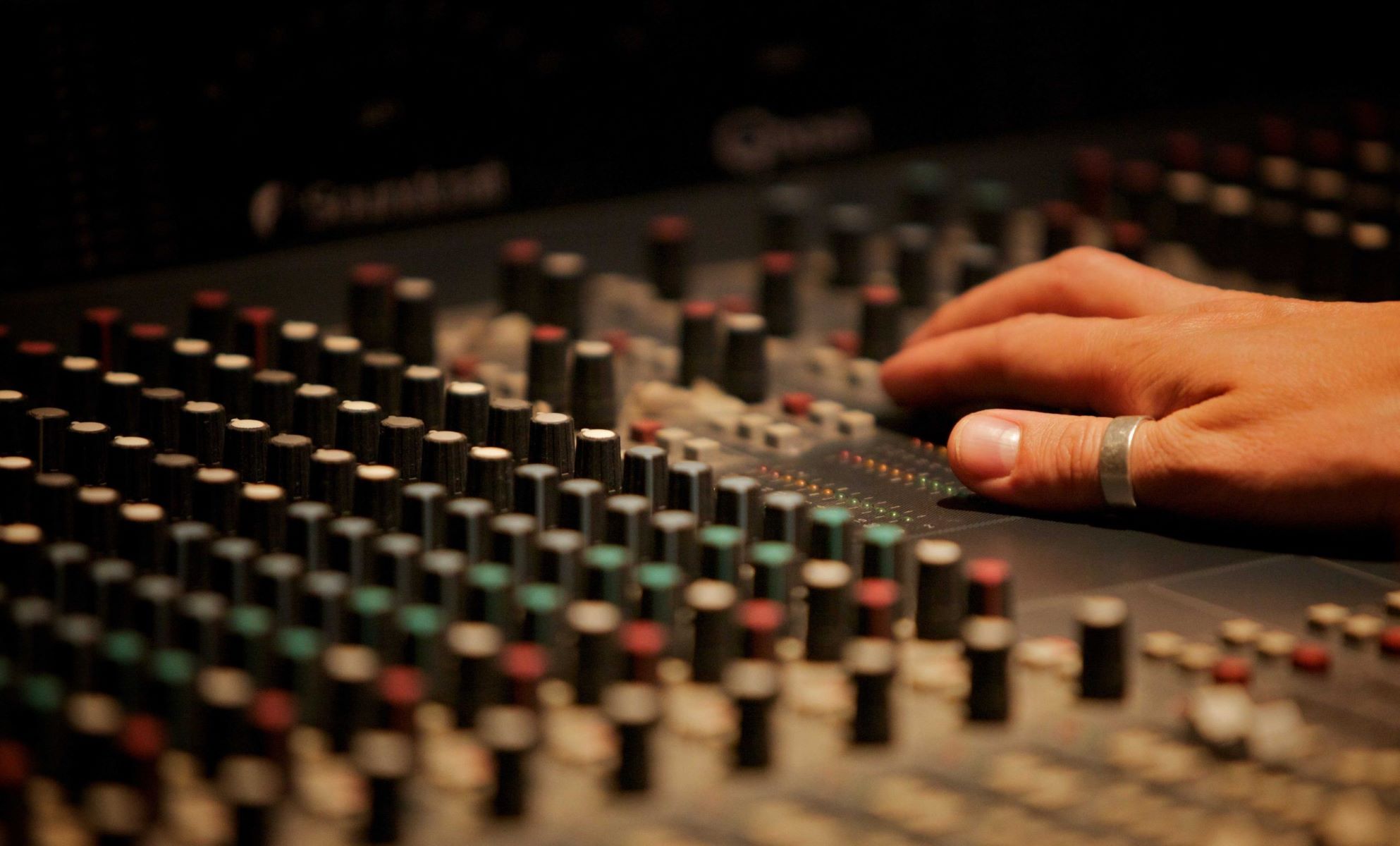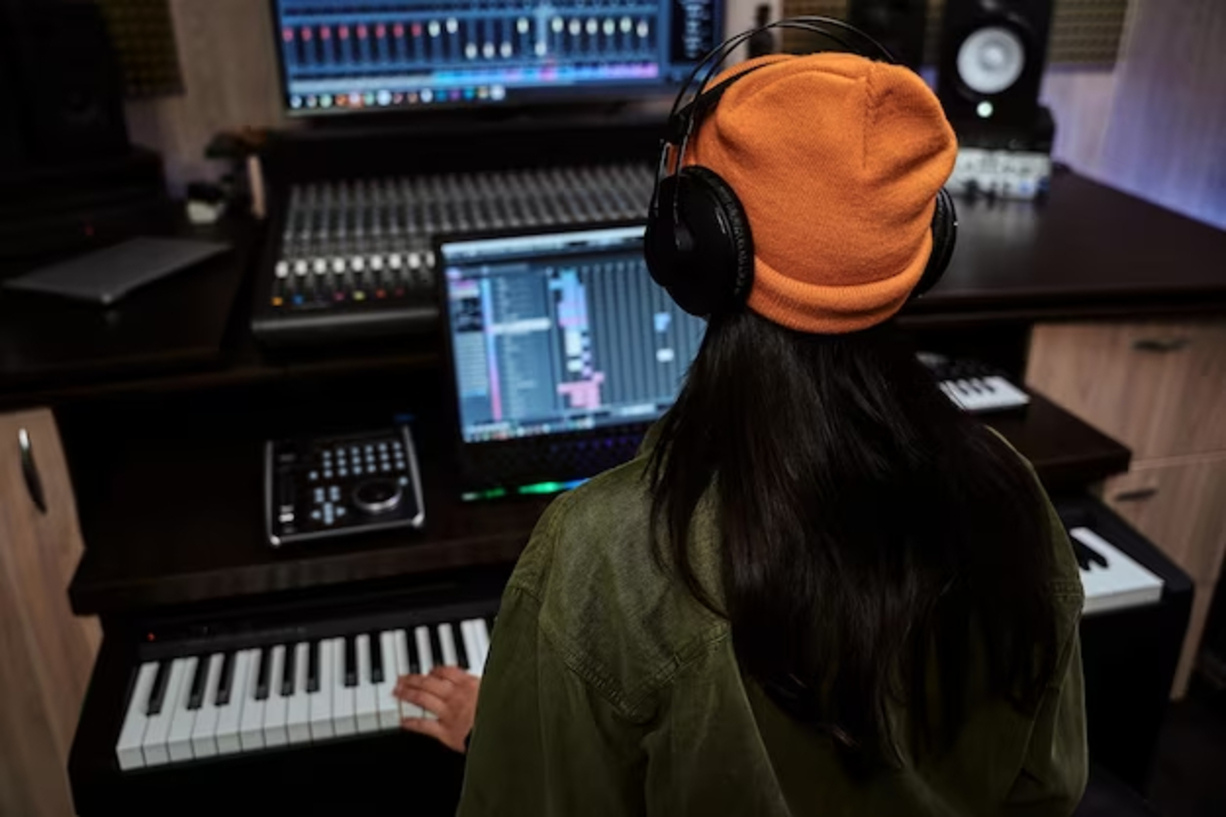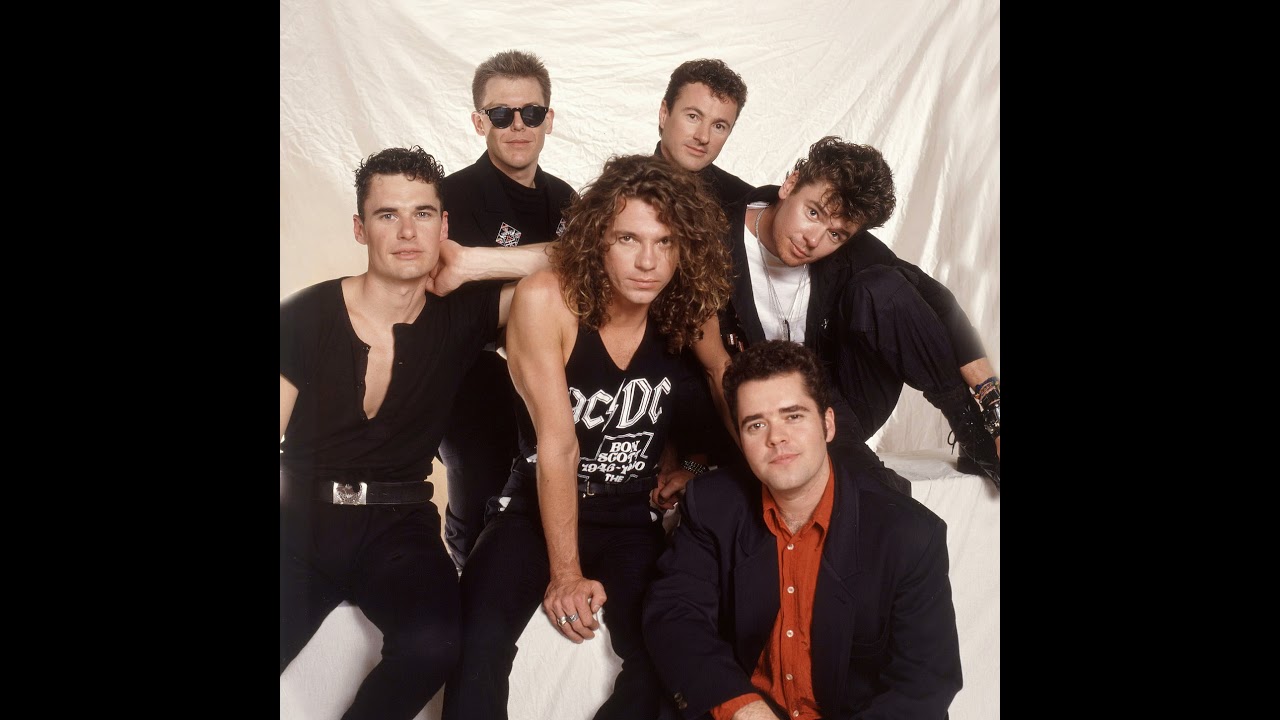Home>Production & Technology>Musician>What Education Do You Need To Be A Musician


Musician
What Education Do You Need To Be A Musician
Modified: February 1, 2024
Discover the essential education required to pursue a career as a musician. Explore the various pathways to become a skilled musician and learn how to excel in the music industry.
(Many of the links in this article redirect to a specific reviewed product. Your purchase of these products through affiliate links helps to generate commission for AudioLover.com, at no extra cost. Learn more)
Table of Contents
Introduction
If you have a passion for music and dream of pursuing a career as a musician, you may be wondering what kind of education is necessary to achieve your goals. While there is no one-size-fits-all answer to this question, there are various educational paths you can consider to enhance your skills and knowledge in music.
Whether you aspire to be a classical pianist, a rock guitarist, or a jazz saxophonist, obtaining a formal education in music can provide you with a strong foundation and open doors to a range of opportunities within the industry. However, it is important to note that while education can be valuable, it does not guarantee success as a musician. Ultimately, hard work, talent, dedication, and a bit of luck also play a significant role.
In this article, we will explore different educational paths that aspiring musicians can pursue. From formal degree programs to vocational training and self-education, each path has its own merits and can contribute to your growth as a musician. Whether you choose a traditional academic route or a more alternative path, the key is to find the educational path that aligns with your goals and values.
Formal Education
Formal education in music refers to structured programs offered by colleges, universities, and conservatories. These programs typically provide a comprehensive curriculum that covers various aspects of music theory, history, composition, performance, and more. Formal education offers a structured learning environment, access to experienced faculty, and opportunities to collaborate with fellow musicians.
Bachelor’s Degree in Music: A bachelor’s degree in music is a common choice for aspiring musicians. This undergraduate program usually spans four years and covers a broad range of musical disciplines. Students can specialize in areas such as performance, composition, music education, or music therapy. The curriculum may include courses in music theory, ear training, music history, ensemble performance, and private lessons.
Master’s Degree in Music: For those who wish to further their musical knowledge and skills, a master’s degree in music is an option. This graduate-level program typically requires two to three years of study. Students can choose to focus on areas like performance, conducting, composition, musicology, or music education. A master’s degree often includes coursework, research, performances, and a thesis or final project.
Doctorate in Music: A doctorate in music is the highest level of formal education in the field of music. This terminal degree is suitable for individuals pursuing careers in academia, research, or specific professional musical fields. A doctorate program usually spans three to five years and requires extensive research and a dissertation. Specializations can range from musicology and music theory to composition and performance.
Formal education provides aspiring musicians with comprehensive training and a deep understanding of music theory, history, and technique. It also offers opportunities to network and collaborate with other talented musicians and faculty members. However, it is important to note that while formal education can be beneficial, it is not the only path to becoming a successful musician.
Bachelor’s Degree in Music
A Bachelor’s Degree in Music is a popular choice for aspiring musicians looking to further their education and hone their skills. This undergraduate program typically spans four years and provides students with a well-rounded education in various aspects of music.
The curriculum of a Bachelor’s Degree in Music is designed to provide students with a solid foundation in music theory, history, performance, and composition. Students often have the opportunity to specialize in specific instruments or vocal performance, allowing them to focus and develop their expertise in a particular area.
During the course of their studies, students will take a variety of courses such as music theory, ear training, music history, ensemble performance, and private lessons. These courses are designed to strengthen their technical skills, improve their theoretical understanding of music, and expand their knowledge of different musical styles and genres.
One of the key benefits of pursuing a Bachelor’s Degree in Music is the opportunity to collaborate and network with fellow musicians. Students often have the chance to participate in ensembles, bands, or choirs, where they can perform together and learn from one another. These experiences can be invaluable in developing teamwork, communication, and performance skills.
Furthermore, many universities and colleges offer performance opportunities for music students, such as recitals, concerts, and competitions. These events allow students to showcase their talents and gain valuable stage experience, which is crucial for aspiring musicians.
Upon completing a Bachelor’s Degree in Music, graduates may choose to pursue various career paths in the music industry. Some may decide to continue their education and pursue a Master’s or Doctorate degree in music, while others may choose to enter the workforce directly. Possible career options include becoming a performing musician, music educator, composer, music therapist, music producer, or working in arts administration.
While a Bachelor’s Degree in Music can provide aspiring musicians with a comprehensive education and valuable skills, it is important to remember that success as a musician also requires dedication, practice, and real-world experience. The degree serves as a stepping stone towards a rewarding career in music, but it is just the beginning of a lifelong journey of growth and learning as a musician.
Master’s Degree in Music
A Master’s Degree in Music is a graduate-level program that allows musicians to deepen their knowledge and skills in their chosen field of study. This advanced degree typically takes two to three years to complete and offers a more specialized and focused approach to music education.
One of the main advantages of pursuing a Master’s Degree in Music is the opportunity to refine your craft under the guidance of experienced faculty members who are experts in their respective fields. The curriculum often includes a combination of coursework, research, and practical experiences, providing students with a well-rounded education that prepares them for a variety of career paths.
While the specific requirements may vary depending on the institution and program, students can expect to take advanced courses in areas such as music theory, music history, musicology, composition, conducting, or performance. These courses delve deeper into the theoretical and historical aspects of music while also allowing students to focus on their specific interests and goals within the field.
Another valuable aspect of earning a Master’s Degree in Music is the opportunity for performance or composition opportunities. Students often have the chance to present recitals, perform in ensembles and chamber groups, compose original pieces, or collaborate with other musicians. These experiences not only allow students to showcase their talents but also help them develop their artistic voice and gain practical skills in performance or composition.
In addition to coursework and performances, many Master’s Degree programs in music also require students to complete a research project or thesis. This research component allows students to delve deeper into a specific topic of interest within the field of music and contribute to the existing body of knowledge. It is an opportunity to showcase critical thinking, analytical skills, and the ability to conduct independent research.
Upon completion of a Master’s Degree in Music, graduates have a wide range of career options available to them. They may pursue careers as professional musicians, music educators, conductors, composers, music therapists, arts administrators, or musicologists, among others. Alternatively, some graduates may choose to continue their education and pursue a doctoral degree in music to further specialize in their chosen field or pursue a career in academia.
Overall, a Master’s Degree in Music offers aspiring musicians the opportunity to further develop their skills, knowledge, and artistic vision in a focused and supportive environment. It provides a pathway to both personal and professional growth, equipping graduates with the tools and experiences necessary to pursue successful careers in the music industry.
Doctorate in Music
A Doctorate in Music is the highest level of formal education available in the field of music. It is an advanced degree that allows musicians to specialize in their chosen area of study and gain expertise in their respective fields. This terminal degree is typically pursued by those who aspire to become scholars, researchers, educators, or highly skilled performers in the music industry.
The completion of a Doctorate in Music usually takes around three to five years, during which students engage in rigorous research, academic study, and practical performance. Doctoral programs offer a highly-focused curriculum that allows students to delve deep into their area of specialization.
The specific requirements for a Doctorate in Music may vary depending on the institution and program, but common components often include coursework, comprehensive exams, a research component, and the completion of a doctoral dissertation or final project.
The coursework in a Doctorate in Music program is designed to further develop students’ theoretical and analytical skills. They may take courses in music theory, music history, musicology, composition, conducting, or performance practice. These courses provide a strong foundation and advanced understanding of music as an academic discipline.
Comprehensive exams are often a part of the doctoral program and are designed to assess the students’ mastery of the subject matter. These exams typically cover a wide range of topics within the field of music and require students to demonstrate a comprehensive understanding of the material.
A significant part of a Doctorate in Music program is dedicated to research. Students are expected to conduct in-depth research on a specific area of interest within the field of music. This research can result in a doctoral dissertation, which is a book-length scholarly work that makes an original contribution to the field. The research conducted during a doctoral program helps students develop critical thinking, analytical skills, and the ability to contribute new knowledge to the field of music.
Overall, a Doctorate in Music offers musicians the opportunity to become experts in their chosen field and pursue careers in academia, research, or specialized professional positions. It provides a platform for advanced study, research, and experimentation, allowing individuals to make significant contributions to the field of music and continue pushing its boundaries.
Music Education Programs
Music education programs are specialized educational programs that focus on training individuals to become music teachers or music educators. These programs are designed to provide aspiring teachers with the knowledge, skills, and pedagogical techniques necessary to effectively teach music to students of all ages and skill levels.
Music education programs can be found at both the undergraduate and graduate levels, depending on the institution and the specific program. These programs typically combine coursework in music education, music theory, music history, and pedagogy, along with practical experiences in teaching settings.
Undergraduate music education programs often lead to a Bachelor’s Degree in Music Education. These programs usually require four years of study and cover a range of topics including music theory, music history, conducting, performance, and teaching methodologies. Students also gain practical experience through field placements in schools or community organizations, where they observe and assist experienced music teachers.
Graduate music education programs are available for those who wish to further specialize in the field of music education. These programs often lead to a Master’s Degree in Music Education. Graduate students focus on more advanced topics such as curriculum development, assessment techniques, educational research, and instructional strategies specific to music education. They may also have the opportunity to conduct research or participate in teaching internships to further refine their teaching skills.
Music education programs emphasize the importance of developing strong musicianship and teaching skills simultaneously. Students learn how to effectively communicate musical concepts, plan and deliver engaging lessons, assess student progress, and create inclusive and supportive learning environments.
Upon completion of a music education program, graduates are equipped with the necessary qualifications to become music teachers in schools, community centers, private studios, or other educational settings. They can teach music at various levels, from elementary schools to high schools, and even at the collegiate level in some cases. Music education programs provide individuals with the tools to inspire a love and understanding of music in their students, fostering a lifelong appreciation for the arts.
Music education programs play a crucial role in ensuring that future generations have access to quality music education. They provide aspiring educators with the knowledge, skills, and confidence to make a positive impact on the lives of their students and contribute to the overall development of music education as a discipline.
Conservatory Education
Conservatory education offers a specialized and intensive approach to music education, focusing on developing technical mastery and artistic expression. Conservatories are dedicated institutions that provide rigorous training to aspiring musicians, aiming to nurture their talent and prepare them for professional careers in music.
Conservatory programs are typically focused on performance-based training, emphasizing instrumental or vocal skills. These programs are highly selective and require a high level of commitment and dedication from students. While academic courses are part of the curriculum, the primary focus is on individual music instruction and ensemble performance.
Conservatory education often spans four to six years and may result in a diploma or a Bachelor’s Degree in Music Performance. The curriculum is designed to provide a comprehensive and immersive experience, allowing students to refine their technique, expand their repertoire, and develop their artistic voice.
At a conservatory, students receive individualized attention from esteemed faculty members who are often accomplished musicians themselves. They have the opportunity to work closely with mentors who guide and nurture their musical growth, offering valuable insights and shaping their artistic development.
In addition to private lessons, conservatory students participate in ensemble performances, masterclasses, and recitals, allowing them to apply their skills in practical and collaborative settings. These experiences help students gain confidence, stage presence, and the ability to perform at a professional level.
One of the distinct advantages of conservatory education is the opportunity to network and interact with fellow talented musicians. Students form connections and collaborate with peers who share the same passion and drive for music, fostering a supportive and inspiring environment.
Upon completion of a conservatory program, graduates are equipped with the skills and experience necessary to pursue careers as professional performers, orchestral musicians, soloists, chamber musicians, or studio musicians. They may also choose to continue their education and pursue advanced degrees or further specialize in their chosen instrument or voice.
While conservatory education offers an intensive and specialized training approach, it is important to note that it may not provide the same level of academic or theoretical knowledge as a traditional university music program. However, conservatories offer a unique environment for students to immerse themselves fully in their craft and cultivate their artistic talents.
Conservatory education is a path that is ideal for individuals who are deeply committed to their instrument or voice and have a strong passion for performance. It provides a transformative and immersive experience that can help aspiring musicians reach their full artistic potential.
Vocational Training
Vocational training in music offers a practical and hands-on approach to learning music skills and techniques. Unlike traditional academic programs, vocational training programs are designed to provide students with the specific knowledge and skills needed to pursue a career in a particular aspect of the music industry.
Vocational training programs in music can vary in length and focus, ranging from short-term certificate programs to longer diploma or associate degree programs. These programs are offered by vocational schools, community colleges, and specialized music institutions.
One of the main advantages of vocational training is its practical nature. These programs focus on developing skills that are directly applicable to the music industry, such as performing, recording, music production, music technology, or music business.
Students in vocational training programs often receive hands-on instruction from industry professionals who have practical experience in their field. They learn through practical exercises, real-world projects, and industry-specific training that prepares them for the demands of the music profession.
Vocational training programs can be completed in a shorter time frame compared to traditional academic programs. This allows students to enter the workforce faster and start building their career in the music industry sooner. However, it’s important to note that a shorter duration may mean a narrower scope of knowledge and skills compared to a comprehensive academic program.
Additionally, vocational training programs often prioritize practical skills over the theoretical and academic aspects of music. While students will still learn fundamental music concepts, the focus is on acquiring the technical skills and industry-specific knowledge needed to succeed in their chosen area of specialization.
Upon completion of a vocational training program, graduates have the opportunity to pursue various career paths within the music industry. They may find employment as performers, session musicians, sound engineers, music producers, music equipment technicians, event managers, or music business professionals.
Vocational training can be a valuable option for individuals who are focused on gaining specific skills and entering the workforce quickly. It offers a practical and targeted approach to music education, equipping students with the technical expertise needed to thrive in their chosen music profession.
Self-Education and Private Lessons
Self-education and private lessons are alternative paths for aspiring musicians who prefer a more flexible and personalized approach to their musical education. While not as structured as formal degree programs or vocational training, self-education and private lessons offer opportunities for individuals to learn and grow as musicians at their own pace.
Self-education in music involves taking the initiative to learn independently, whether through online resources, books, instructional videos, or other learning materials. It allows individuals to tailor their learning experience to their specific interests and goals. This approach is often supplemented by regular practice and self-directed study.
Private lessons, on the other hand, involve one-on-one instruction from a professional music teacher or instructor. These lessons can focus on a particular instrument, vocal training, music theory, composition, or any aspect of music that the student wishes to explore. Private lessons offer personalized instruction and feedback, allowing students to receive individualized guidance and support.
Self-education and private lessons have several advantages. These approaches offer flexibility in terms of scheduling and curriculum, allowing individuals to learn at their own pace and focus on areas that interest them the most. They provide the freedom to explore different musical genres, techniques, and styles without the constraints of a formal program.
Additionally, self-education and private lessons can be more cost-effective compared to enrolling in formal degree programs or vocational training. Students can choose to take lessons on a periodic basis or build a long-term relationship with their instructor, depending on their goals and budget.
One of the key elements of self-education and private lessons is the opportunity for personalized attention and mentorship. Students receive individualized feedback, guidance, and support from experienced music teachers or instructors who can help them identify and work on their areas of improvement.
While self-education and private lessons offer a more flexible and personalized approach, it is important to note that they require self-discipline and motivation. Students must take responsibility for their own learning, practice regularly, and actively seek out resources and opportunities to grow as musicians.
Self-education and private lessons can be a viable option for individuals who prefer a self-paced and personalized approach to their musical education. They offer the freedom to explore and learn at one’s own convenience, while still gaining valuable knowledge and skills in music.
Conclusion
The journey to becoming a musician is as diverse as the art itself. There are various paths and educational options available, each offering its own advantages and opportunities. Whether through formal education, vocational training, conservatory programs, or self-education, aspiring musicians can find a pathway that aligns with their goals and aspirations.
Formal education, such as earning a Bachelor’s, Master’s, or Doctorate degree in music, provides a comprehensive and structured approach to music education. It offers a deep understanding of music theory, history, performance, and composition, while also providing opportunities for collaboration and networking.
Vocational training programs offer practical skills and specialized training for specific roles within the music industry. These programs focus on performance, recording, music production, or music business, allowing individuals to quickly enter the workforce with targeted skills.
Conservatory education provides an intensive and focused approach to music training, emphasizing technical mastery and artistic expression. It offers personalized attention from accomplished faculty members and the opportunity to refine skills through performances and collaborations.
Self-education and private lessons provide a flexible and personalized approach to learning music. It allows individuals to tailor their education to their specific interests and learn at their own pace, either through independent study or one-on-one instruction.
Ultimately, the choice of educational path depends on personal preferences, career goals, and the resources available. It’s important to remember that while education is valuable, success as a musician also requires dedication, hard work, and real-world experience.
Aspiring musicians should carefully consider their options, research institutions and programs, and seek guidance from experienced professionals in the field. Combining formal education with real-world experience, performances, collaborations, and a continuous commitment to improvement will help pave the way for a successful career in music.
No matter the educational path chosen, a true musician is never done learning. The journey to mastery is lifelong, with constant exploration and growth, pushing the boundaries of creativity and expression. So, embrace the education that resonates with you, immerse yourself in music, and let your passion guide you towards achieving your musical dreams.











